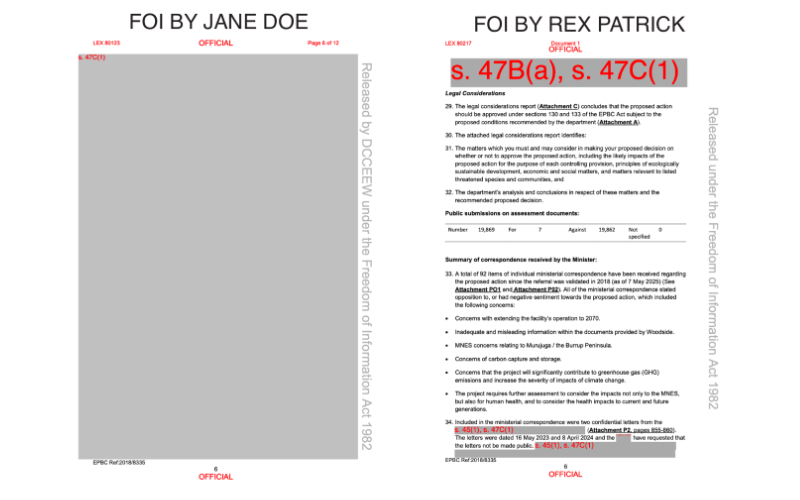
UPDATE: A shocking disparity in Freedom of Information (FOI) outcomes has just come to light, revealing a troubling flaw in government transparency processes. In a startling examination of two identical FOI requests made just one month apart, the results starkly differ, raising questions about the integrity of the system.
In May 2023, a request from an individual identified as Jane Doe to the Department of Climate Change, Energy, the Environment and Water (DCCEEW) sought the decision brief provided to Environment Minister Murray Watt concerning the North West Shelf gas project extension. A month later, in June 2023, former Senator Rex Patrick submitted a similar FOI request to Minister Watt’s office for the same document. The outcome? Two distinct results with no clear rationale for the discrepancy.
The contrasting responses highlight a fundamental issue: the FOI process, designed to bolster government transparency, appears to be fundamentally flawed. It seems outcomes may hinge on the identity of the requester and the timing of the request. Why does it seem that one month can make such a difference?
Experts suggest that differing attitudes within government offices may play a role. Perhaps the official who handled Jane Doe’s request was more ‘disclosure timid’ than the chief of staff in Rex Patrick’s case. Rex Patrick, known as the “Transparency Warrior,” is no stranger to challenging secrecy. He has made it clear he will not accept “secrecy for the sake of secrecy” and plans to appeal the decision from Minister Watt’s office to the Information Commissioner.
This appeal could have significant implications for both Jane Doe and the public. If successful, it could pave the way for greater accountability and transparency in government dealings, reinforcing the public’s right to access information.
As the FOI process faces scrutiny, the call for reform has never been more urgent. Patrick’s commitment to appealing the decision highlights the growing frustration among citizens and advocates alike over government opacity. “Delay, deny, defend. The FOI process is broken,” he stated emphatically.
The implications of this situation extend beyond individual requests; they touch on the core principles of democratic governance and public accountability. As citizens demand transparency, officials must respond to the pressing need for reform in the FOI process.
The situation is developing rapidly, and observers are watching closely to see how the Information Commissioner will respond to Patrick’s appeal. The outcomes of these requests could reshape public access to government information and strengthen the foundations of transparency that many feel are currently eroding.
As this story unfolds, it underscores a crucial question for all citizens: How transparent is our government, and what steps must be taken to ensure that the FOI process truly serves its intended purpose? Stay tuned for updates as this urgent issue develops.





